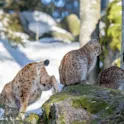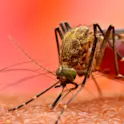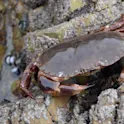
Featured news
16 Feb 2023
From microplastic waste to large, ancient squirrels: Five Frontiers articles you won’t want to miss
By Deborah Pirchner, Frontiers science writer Image: Shutterstock.com At Frontiers, we bring some of the world’s best research to a global audience. But with tens of thousands of articles published each year, it’s impossible to cover all of them. Here are just five amazing papers you may have missed. UK seafloor sediments rich in microplastics For years, plastics have made up a large portion of the debris polluting the marine environment. Much of this plastic consists of particles under 5mm in any dimension. Writing in Frontiers in Marine Science, an international team of researchers from the UK and Norway examined the occurrence and abundance of microplastics in UK seafloor sediments between 2013 and 2021. The scientists used a fast-screening approach for the detection and quantification of microplastics in sediment samples. They detected microplastics in every sample collected from 15 sites around the UK, which supports the argument that seafloor sediments are suitable matrices for the long-term monitoring of microlitter. The adoption of seafloor sediments as a common indicator for microlitter for the north-east-Atlantic region would allow for future assessments at a regional level as well as regional action plans rather than isolated national remediation measures, the researchers pointed out. The […]













